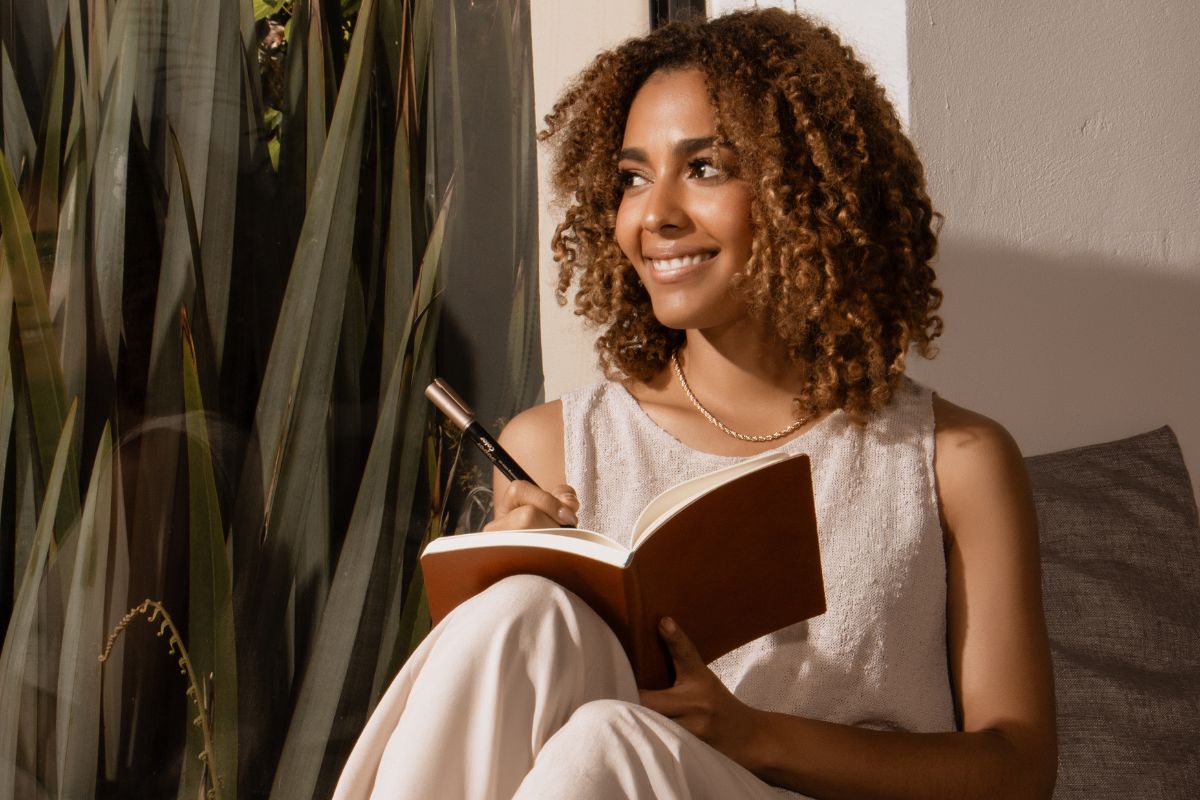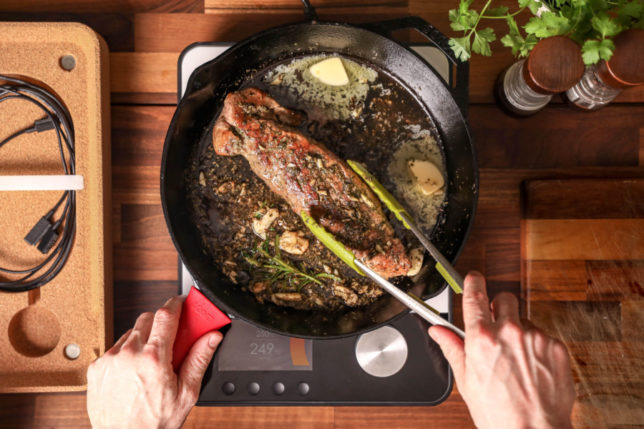By Jess Pritchard – fitness trainer, wellness entrepreneur and founder of MIRRA Journal Club.
If you’ve never journaled before you might think of it as being a little romantic, perhaps silly, and something that you associate with Bridget Jones. If you have, you almost certainly get it.
Journalling changed my life and has become an integral part of my mental health upkeep, particularly as an entrepreneur. I rave about it daily and often get the same questions — but what do I write? And why?

Journalling is known for its self development qualities, as a therapy tool and as a mindfulness hack — it helps you reduce stress, boost self-awareness, and improve emotional resilience — all whilst improving your relationship with you. You’ve heard the saying tidy home tidy mind? Well, your head is also your home. Journalling feels like tidying my bedroom so I can sleep and wake with more clarity and less mess.
We’ve all experienced feeling overwhelmed, lost or just plain old indecisiveness — I use journalling across all of these. Sometimes to help make huge decisions, but often just to stay close to myself, as an act of self care, and to sustain a higher level of mental peace.

I’ll never forget a few years ago there was one decision I’d been sitting on for months and months. I’d talked it out with so many friends, I’d cried about it and imagined all scenarios. I just couldn’t decide what to do. I was on holiday and I took myself down to the beach alone. I asked the waiter if I could please borrow a bit of paper and a pen. I brain-dumped all my thoughts without any censoring. No distractions, no one else’s input, no phone, and most importantly knowing that no one would ever read it.
Turns out I knew exactly what to do. This huge thing I’d been weighing up for months suddenly felt less huge. There on that bit of paper, was my answer. Ultimately a quick journal helped me connect to my gut.

Starting Your Journaling Journey
All you need is paper / a note pad, pen and a quiet moment.
You don’t need to have a fancy journal book (although it can be), often a scrap of paper that you’ll later throw out is perfect.
Some people practise this a few times a week, some do it every day religiously, and for many journalling is just a great tool to reach for when you feel you need it. There is no right or wrong.

Writing Your First Journal Entry
I start with a brain dump. This is the most important part of my journalling and sometimes I only do this bit. The brain dump is essentially a form of flow-state writing, scribbling down your stream of consciousness as it comes. It doesn’t need to make sense, doesn’t need to be something you read back.
My handwriting is usually a bit wild here and I’m writing with minimal pauses — literally thinking out loud (onto the page). If you get stuck, start with how you’re feeling generally, you’ll always end up bringing yourself to the topic you need. The aim here is to take your thoughts from feeling spirally and spaghetti-like, to clearer lines. Think of it as sorting out your mental wardrobe and re-folding your clothes, maybe throwing out some bits that no longer fit or suit you.
Here, I really encourage you to write with the mindset that this will never be read by anyone. Your journal should be your safe space, not something you sensor or share with anyone.

Using Journal Prompts
I then go on to use some journal prompts. Choose a few that resonate and answer honestly, again — with the idea that it will never be read. Here are a few of my go-to’s:
- What is something that’s disturbing my peace right now and how would the best version of me handle this? Can I align more with this version of me than I am? If I can’t control it, could I let it go?
- How do I feel about myself today, at this very moment?
- Am I looking after myself with the same level of care I would give someone I’m responsible for? What can I add to my life right now to better my self care?
- When do I feel my happiest self? Can I do more of this?
- What does my perfect week/month/year look like? How can I reasonably live closer to this?
- When and how do I feel the most loved? Do my closest people make me feel this way? Could I explain the first answer to them more to help them love me in my language?
- What are my fears right now?
- What do I need to say no to right now or get done and tick off that would really improve my general peace? Make a realistic schedule prioritising these things.

Affirmations
I then finish with affirmations. Affirmations are essentially getting your thoughts on your side — it’s the practice of self belief and self-confidence. The idea that if you say it enough to yourself, it has the ability to be true. These daily affirmations help create an abundant, grounded and confident mindset, so that ultimately, you begin to embody the words you write and truly believe them for yourself. Choose affirmations that are what you need to hear that day, and how you want to show up, such as:
- I am enough.
- I am someone good things happen to.
- I can make a real difference to peoples day.
- I am strong enough.
- I have the power to make the right choices for me.
- I am worthy of ________.
- I am happy to be me.
- I deserve to take up my space.
Pick 1-3 and write them out again and again next to each other 5-10 times. Write them down or even better, say them out loud.

And that’s journaling! I encourage you to journal a few times a week and see how you go. Get to know yourself deeply. Hold the same space you do for your best mate over a coffee. Lean in and really listen. Let me know how you get on.

You can find out more about MIRRA Journal Club at @mirrajournalclub on socials, with monthly events and regular brand partnerships. I dare you to take up your space and journal.
About the expert
 Jess Pritchard is a fitness trainer and wellness entrepreneur, currently working with leading fitness brands such as 1Rebel and Oysho. Driven by a passion to help others live better lives, Jess is a thought leader in the self-love space, drawing on her own personal journey through grief and body image challenges to empower others. She is the founder of Flow & Grow, a platform offering public community events and corporate wellbeing workshops. Her latest venture, MIRRA Journal Club, is a real-life journaling space launching in Central London, designed to help people reconnect with themselves, process their emotions, and confidently “take up space” in their lives.
Jess Pritchard is a fitness trainer and wellness entrepreneur, currently working with leading fitness brands such as 1Rebel and Oysho. Driven by a passion to help others live better lives, Jess is a thought leader in the self-love space, drawing on her own personal journey through grief and body image challenges to empower others. She is the founder of Flow & Grow, a platform offering public community events and corporate wellbeing workshops. Her latest venture, MIRRA Journal Club, is a real-life journaling space launching in Central London, designed to help people reconnect with themselves, process their emotions, and confidently “take up space” in their lives.


